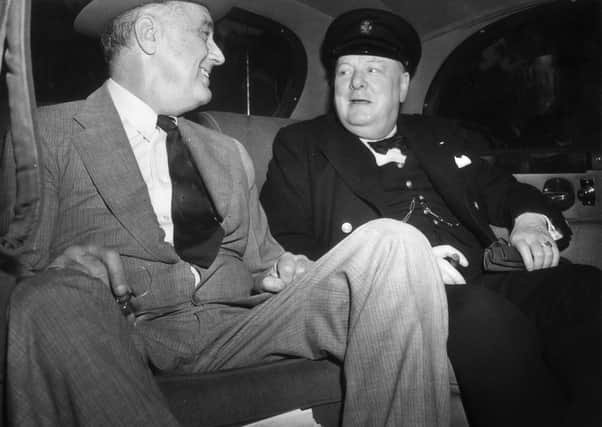THROUGH THE ARCHIVES: President Roosevelt granted wider powers in ‘national emergency’


The War Department had submitted to Congress a request for legislation authorising President Roosevelt during the national emergency to requisition property of any kind of “necessary to national defence”.
Officials said the authority which was being sought was “all-inclusive”, and was similar to the powers President Wilson exercised during the war of 1914-18.
Advertisement
Hide AdAdvertisement
Hide AdPresident Roosevelt, the Navy Department and the Office of Production Management approved the Bill, which stated that the authority asked for “shall be construed and considered as an additional grant of authority”.
Legislation permitting President Roosevelt to appoint an unlimited number of Vice-Admirals was passed without debate by the House of Representatives and sent to the Senate.
The extra Vice-Admirals were to take charge of “special and unusual” missions of the naval forces.
High naval officials stated at recent hearing by the House Naval Committee that the new Vice-Admirals would command “task forces”, separated from the fleet for special duty.
Advertisement
Hide AdAdvertisement
Hide AdNo indication was given, however, as to where these “task forces” would sent.
Mr Winant, Ambassador to Great Britain, was expected to confer with President Roosevelt and Mr Cordell Hull, Secretary of State.
A State Department official told newspapermen that Mr Winant had returned to the United States only for a general exchange of views.
Endeavouring to allay the speculation that had been rife regarding Mr Winant’s visit, the official said that ten days previously that the ambassador had asked for permission to return for consultation.
Advertisement
Hide AdAdvertisement
Hide AdHe brought no special message from the British government so far as was known.
President Roosevelt had sent a message Congress recommending additional appropriations amounting to 125000,000 dollars (£31,250.000) for special defence highway construction.
On the evening of his return from his Hyde Park home to Waahington, President Roosevelt appeared to be moving in the direction of “new and possibly momentous decisions” on increasing the aid to Britain.
Some members of the Presidential party suggested that a decision on a broader course of action to assist Britain hinged, to a large extent, on the conference in Washington between the President and his Ambassador in London, Mr Winant.
The Associated Press reported: “They say that such decisions would come up to the expectations raised by last week’s ‘fireside chat’ by the President.”
Comment Guidelines
National World encourages reader discussion on our stories. User feedback, insights and back-and-forth exchanges add a rich layer of context to reporting. Please review our Community Guidelines before commenting.